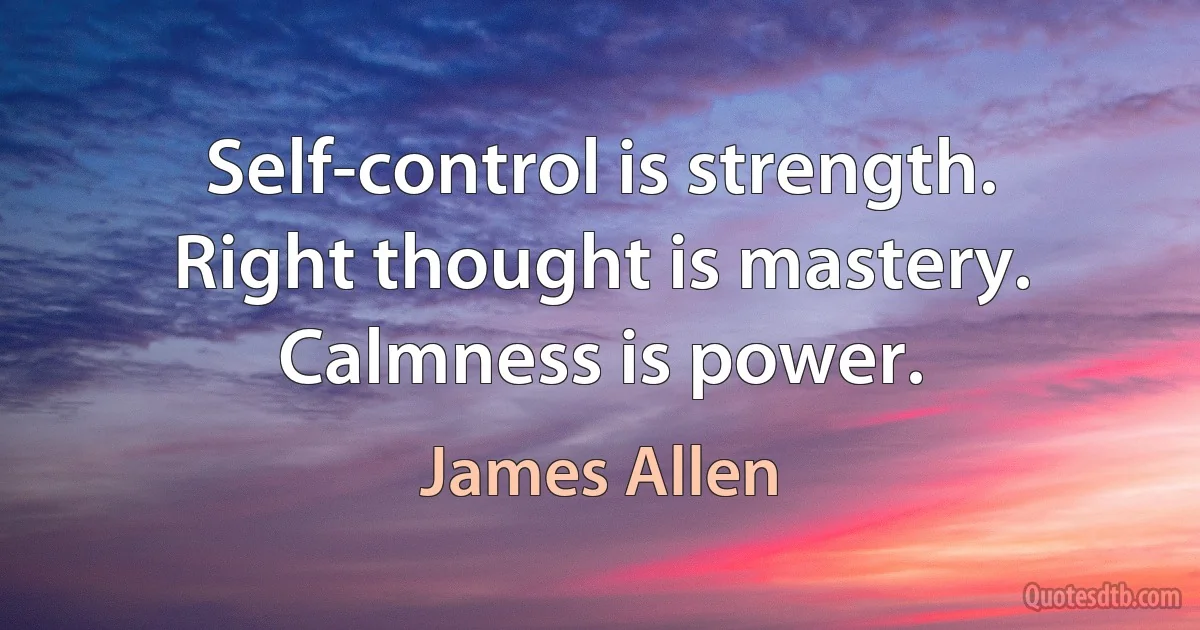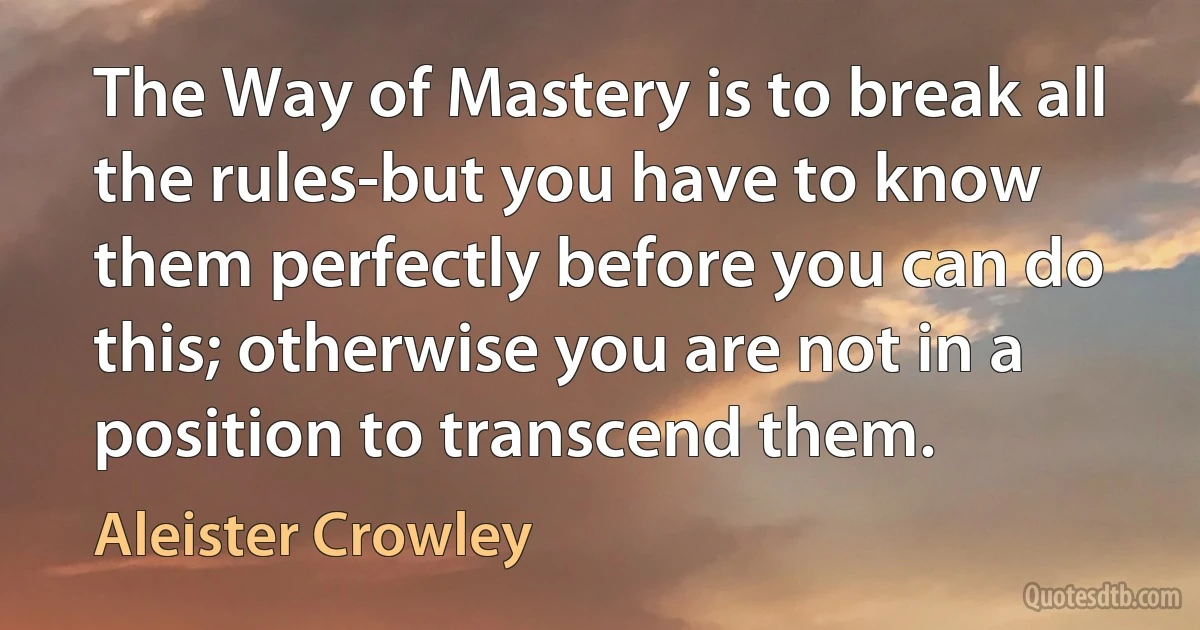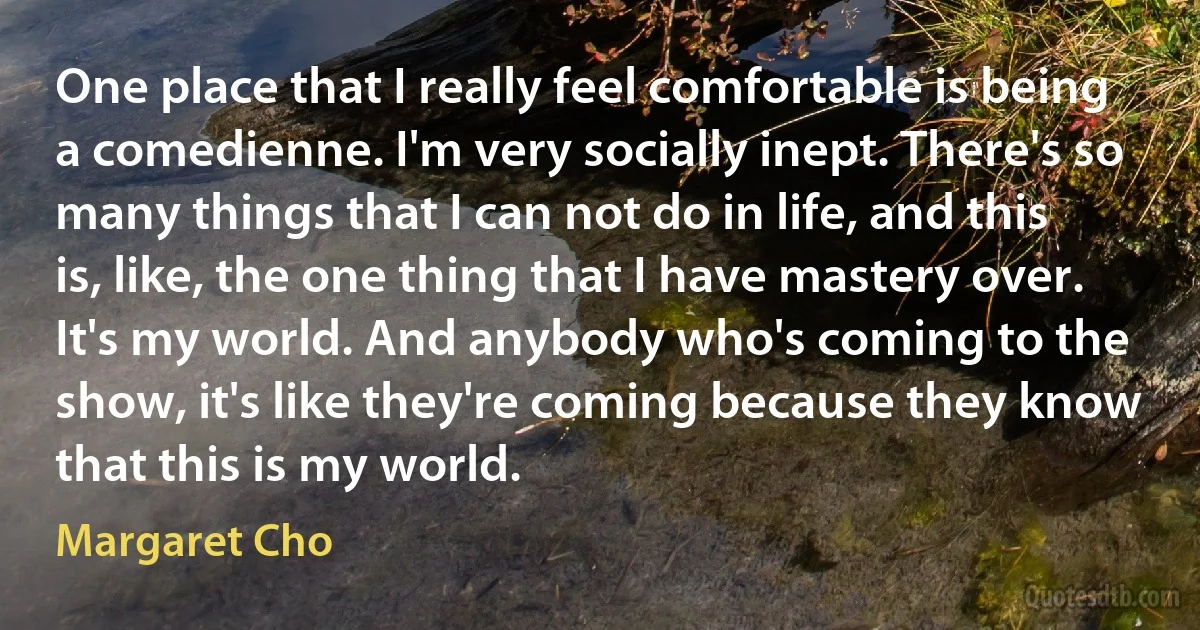Mastery Quotes - page 3
The principal contradiction within capitalism from the outset was that between the capitalists and the workers. To keep their system going, the capitalists had constantly to step up the rate of exploitation of their workers. At the same time, European workers were gaining increasing mastery over the means of production in the factories and mines, and they were learning to work collectively in big enterprises and within their own trade union structures. If the bourgeoisie continued to deprive them of the major part of the fruits of their own labor and to oppress them socially and politically, then those two classes were set on a collision path. Ever since the mid-nineteenth century, Marx had predicted class collision would come in the form of revolution in which workers would emerge victorious. The capitalists were terribly afraid of that possibility, knowing full well that they themselves had seized power from the feudal landlord class by means of revolution.

Walter Rodney
The second conception of the world via the medium of matter required both a visual and a tactile perception of things. In this case the whole design process tends to emanate from the specific characteristics of the respective medium used. The leader of this movement (Tatlin) assumed.... that the intuitive and artistic mastery of materials would lead to inventions on the basis of which objects could be constructed. He believed he could prove this theory with his design for the 'Monument to the Third International' (1920), [never built]. He accomplished this task without having any special technical knowledge of construction.

El Lissitsky
For an African writing in English is not without its serious setbacks. He often finds himself describing situations or modes of thought which have no direct equivalent in the English way of life. Caught in that situation he can do one of two things. He can try and contain what he wants to say within the limits of conventional English or he can try to push back those limits to accommodate his ideas ... I submit that those who can do the work of extending the frontiers of English so as to accommodate African thought-patterns must do it through their mastery of English and not out of innocence.

Chinua Achebe
It is this which explains nationalism: the principle - so strange and eccentric in the age of agrarian cultural diversity and the 'ethnic' division of labour - that homogeneity of culture is the political bond, that mastery of (and, one should add, acceptability in) a given high culture ... is the precondition of political, economic and social citizenship.

Ernest Gellner
What many of us fail to realize is that the last four hundred years are a highly special period in the history of the world. The pace at which changes during these years have taken place is unexampled in earlier history, as is the very nature of these changes. This is partly the results of increased communication, but also of an increased mastery over nature, which on a limited planet like the earth, may prove in the long run to be an increased slavery to nature. For the more we get out of the world the less we leave, and in the long run we shall have to pay our debts at a time that may be very inconvenient for our own survival.

Norbert Wiener
Cultural systems will be treated as extensions of the power to learn, store, and transmit information, and the evolution of culture as dependent upon the biological development of these abilities and the cultural developments that actualize them. Man's increasing mastery over the natural world, with its increments of available energy use, can be seen from this point of view as one consequence of his capacity to learn, invent, borrow, store, and transmit the necessary technological and political inventions for the changes of scale involved in increasing utilization of energy. Instead of focusing attention on discontinuities - the invention of tool-making tools, the invention of agriculture, the invention of writing, and the invention of invention as a conscious pursuit-this discussion will focus on the continuities involved and on the extent to which older forms of communication, energy use, and social organization also undergo transformation in the course of cultural evolution.

Margaret Mead
Islam must take the initiative of recognizing motherhood as a social function. Harems must be abolished. No one has the right to refer to Islam as a reason to keep women disenfranchised: abuse of this kind must be brought to an end. Such attitudes do not represent a Western feminism, which has displayed a tendency to impose the measures, whims and mastery of a depraved element among the female sex. Neither is this equality in the European sense. It is an underlining of the equal value of men and women, together with the underlining of the differences between them, which should be preserved.

Alija Izetbegović
This movie is not merely bad, but incompetent. I get tapes in the mail from 10th graders that are better made than this... I have often asked myself, "What would it look like if the characters in a movie were animatronic puppets created by aliens with an imperfect mastery of human behavior?"

Roger Ebert
The main dimensions of Marx's discussion of alienation are as follows: ...
1. The worker ... has no power to determine the fate of what he produces. ...
2. The work task does not offer intrinsic satisfactions. ...
3. Human relations, in capitalism, tend to become reduced to operations of the market. ... Money promotes the rationalization of social relationships, since it provides an abstract standard in terms of which the most heterogeneous qualities can be compared, and reduced, to one another. ...
4. Some animals do produce, of course, but only in a mechanical, adaptive fashion. Alienated labor reduces human productive activity to the level of adaptation to, rather than active mastery of, nature.

Anthony Giddens
Catilina in particular was one of the most nefarious men in that nefarious age. His villanies belong to the criminal records, not to history; but his very outward appearance - the pale countenance, the wild glance, the gait by turns sluggish and hurried - betrayed his dismal past. He possessed in a high degree the qualities which are required in the leader of such a band - the faculty of enjoying all pleasures and of bearing all privations, courage, military talent, knowledge of men, the energy of a felon, and that horrible mastery of vice which knows how to bring the weak to fall, and how to train the fallen to crime.

Theodor Mommsen
The student should have enough knowledge of his or her cultural tradition to know how it got to be the way it is. This involves both political and social history, on the one hand, as well as the mastery of some of the great philosophical and literary texts of the culture on the other. It involves reading not only texts that are of great value, like those of Plato, but many less valuable that have been influential, such as the works of Marx. For the United States, the dominant tradition is, and for the foreseeable future, will remain the European tradition. The United States is, after all, a product of the European Enlightenment. However, you do not understand your own tradition if you do not see it in relation to others. Works from other cultural traditions need to be studied as well.

John Searle



